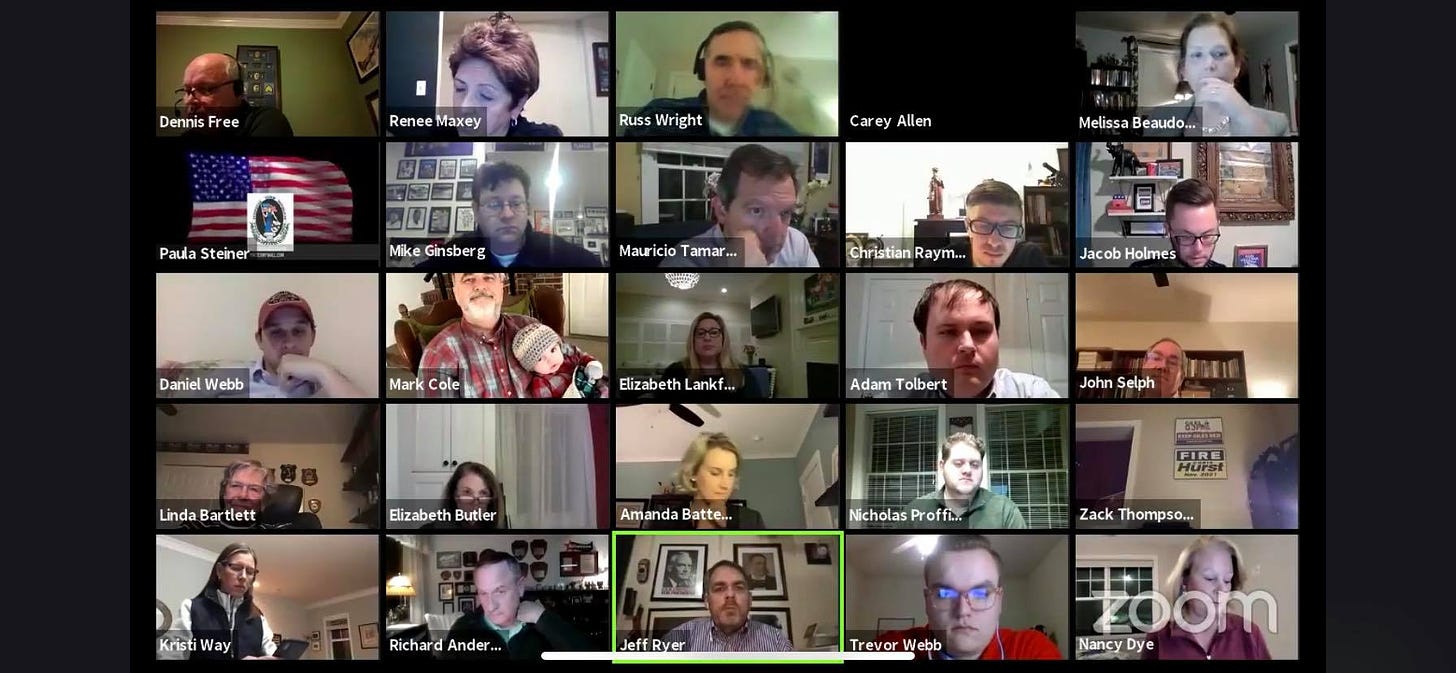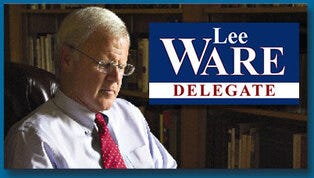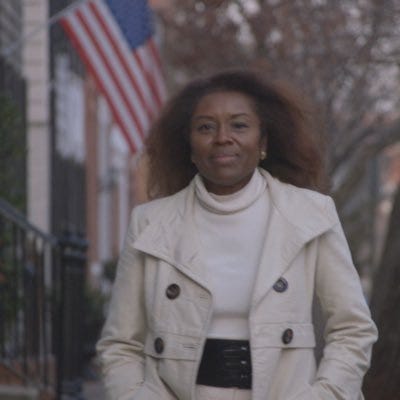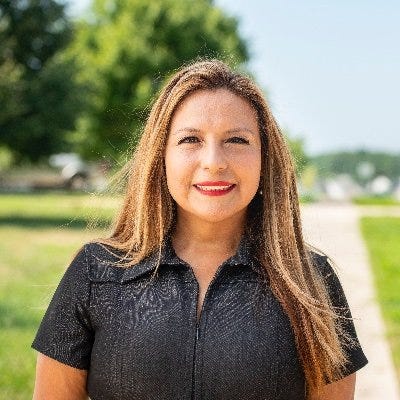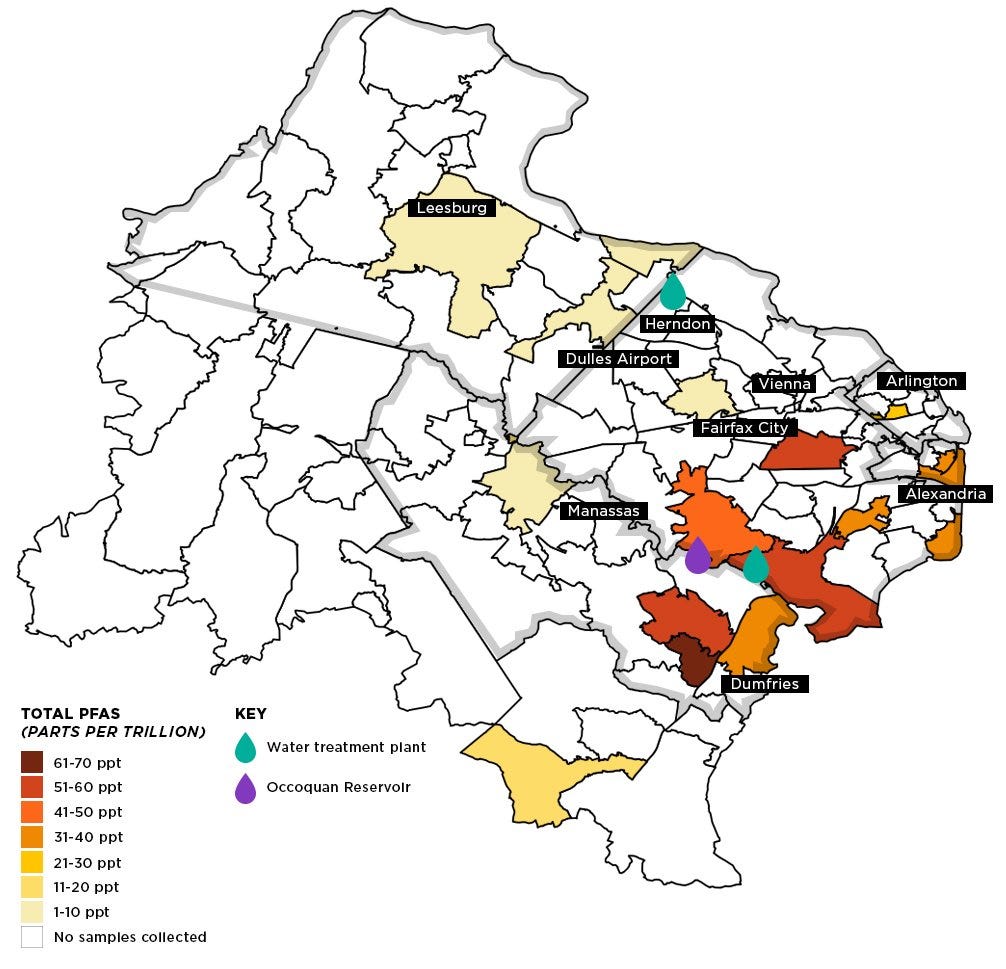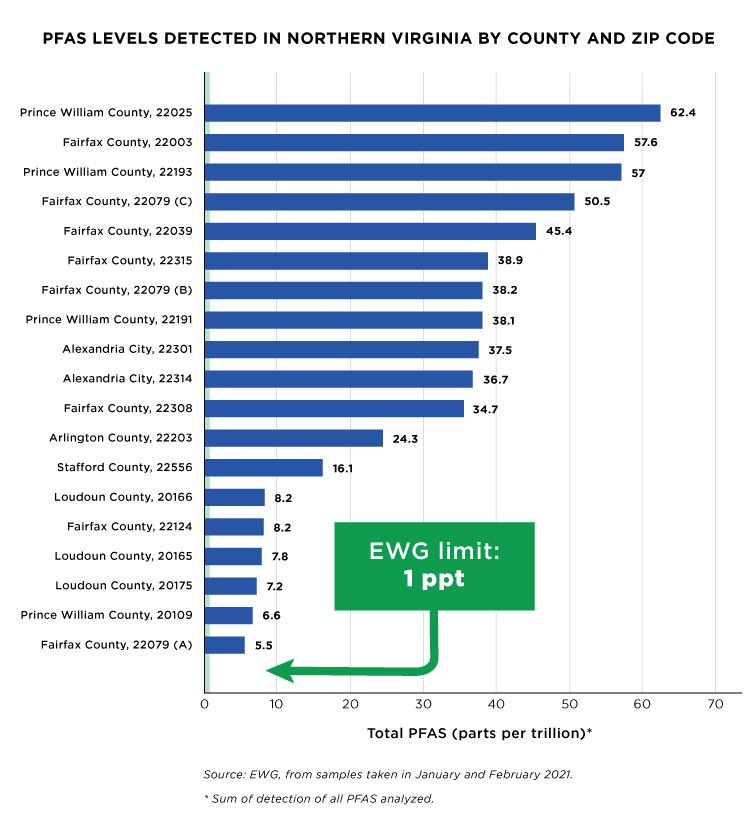As the GOP chair tries to navigate the messy nomination process, local party leaders express disappointment in leadership and GOP LG candidates fight over frontrunner claims
The latest in Virginia politics
Subscribe today to receive the inside scoop on Virginia politics with access to paid content.
Welcome to Wednesday!
As the GOP chair tries to navigate the messy nomination process, local party leaders express disappointment in leadership
The Republican Party of Virginia (RPV) has yet to finalize the nomination method for candidates running for governor, lieutenant governor, and attorney general. While party leadership asked for feedback from all local unit leaders about voting remotely in a convention, some of those unit leaders sent party leadership a separate letter expressing disappointment in how the nomination process has played out over the last few months.
The State Central Committee (SCC) has struggled with finalizing the nomination method for statewide candidates since they first decided in December to use a convention. Then after several failed attempts from members of the committee to change it to an unassembled convention or a primary, the party seemed to be at an impasse due to not legally being allowed to hold a large in-person gathering during a pandemic.
Eventually, at a meeting in February, the committee decided on a drive-thru convention at Liberty University. That plan only seemed promising for a few days and now has to be changed after RPV and Liberty University officials decided that an in-person, one-location convention of any kind is not feasible right now.
To address this problem quickly, RPV’s Chairman Rich Anderson scheduled a meeting of the SCC for this Friday. One of the items expected to be on the agenda is an amendment that would allow for remote convention voting locations across the Commonwealth.
Being proactive, Anderson sent a letter Monday to the local Republican unit chairs requesting that they inform him of whether they would want to choose the locations for remote voting themselves and handle to operation in their area or leave it up to each congressional district committee to choose and execute. “As part of our planning process, the SCC wants to consider your feelings on how remote voting locations are selected for delegates to cast their ballots to nominate our candidates for Governor, Lieutenant Governor, and Attorney General,” Anderson wrote in the letter.
This amendment that would allow for remote voting would also resemble an unassembled convention, which is a change that the SCC repeatedly voted against several times since December.
Frustrated with the confusion, eight local GOP committee chairs expressed their feelings in a letter crafted primarily by Tim Parrish, the chair of the Prince William County GOP Committee. The letter was sent to Anderson and the SCC on Tuesday morning. “We are writing to express our profound disappointment at the recent conduct of the State Central Committee, and our request on resolution for a clear path forward,” the letter reads. “Frankly, we need our decision makers to make decisions and our leaders to lead. The long delay and lack of substantive information regarding the nomination method of our statewide offices has become a debilitating aspect of leading our party at the local unit level.”
The other signers of the letter are the chairs of the Fairfax, Chesapeake, Danville, Greene, Fauquier, Madison, and Sussex GOP committees.
As they are the people on the ground that will be responsible for implementing the process that the SCC chooses, the authors of the letter expressed fear of being ill-equipped with little time left to prepare. “As of today, we stand just two short months shy of an assembled convention,” they wrote to Anderson. “Republican unit leaders across the Commonwealth will be expected to execute the haphazard decisions of this body, having had no input as to its particulars and with details remaining unknown. We have been grossly ill-equipped to answer the litany of questions coming from our unit members, potential delegates and members of the media concerning the embarrassing spectacle that has become of this process.”
Del. Lee Ware Endorses Pete Snyder for Governor
I am pleased to endorse Pete Snyder for Governor. Pete is a man of achievement and known conservative principle, who knows how to win this election,” said Delegate Lee Ware (R-Powhatan).
“I am proud to have Delegate Ware’s endorsement,” Snyder said He has been a thoughtful, conservative leader in Richmond and as a lifelong educator and former member of the Virginia State Board of Education, he knows how important our fight is to open our schools. We are truly blessed to have him on the team as we continue our fight against the liberal national teachers unions so we can open schools five days a week with a teacher in every classroom.”
Republican LG candidate responds to Glenn Davis’ claims that he is the front runner
Del. Glenn Davis claimed in an email recently that he is the front runner to get the Republican nomination for lieutenant governor. “Results from a recent survey by Virginia FREE are the latest indicator confirming that we are way ahead in the Republican field,” Davis wrote in an email. “This is the sixth consecutive poll or survey confirming our frontrunner status.”
Winsome Sears, a former delegate that is also seeking the Republican nomination for Lieutenant Governor responded in a campaign email of her own. “It is disappointing that just one day removed from International Women’s Day that Glenn Davis is ignoring and devaluing the accomplishments of small business owner Winsome Sears.
“To take it a step further, consider that Americans for Tax Reform sent an advisory condemning Glenn Davis’ refusal to sign the Taxpayer Protection Plan. That doesn’t sound very conservative to Republicans throughout Virginia.”
A spokesperson for Sears said the following: “Glenn Davis’ denial of Winsome Sears’ entrepreneurial record can only remind all Virginians of one thing—President Obama’s strikingly similar claim in 2012 that ‘you didn’t build that.’”
ATU International and ATU Local 689 Endorse Elizabeth Guzman for Lieutenant Governor
ATU International President John Costa said: “The ATU supports Elizabeth Guzman to be the next lieutenant governor of Virginia. She is battle-tested, pro-transit and supportive of unions. Elizabeth is both an effective legislator and a proven fighter for workers, and her voice is desperately needed in the State Senate. She has unapologetically championed a $15 minimum wage, paid sick days for all, the repeal of right-to-work and collective bargaining rights for public sector employees. Elizabeth understands the needs of Virginia’s working families, and she has the experience needed to make meaningful change. We are honored to endorse Elizabeth and will be out in force to help her win this election.”
ATU Local 689 President Raymond Jackson said: “Not only is Elizabeth Guzman a proven fighter for workers, but she has a bold vision for public transit. She introduced and passed a budget amendment last year to fund a $2 million study on extending the Blue Line to Quantico. Her steadfast commitment to public transportation combined with her passion for workers’ rights makes Elizabeth Guzman our ideal candidate for lieutenant governor. We proudly endorse her campaign and will fight for her because she fights for us.”
Elizabeth Guzman said: “My father was a union member and transportation worker. He worked for the Port Authority in Peru, so this endorsement is personal to me. His union gave my parents a stable life and even empowered them to buy a home through the union’s mortgage program. I wish he were here to see these transportation workers putting their trust in me. Transportation workers are essential personnel who kept our country and Commonwealth running throughout this pandemic. Virginia and our federal government need to make bold investments in public transportation to reduce congestion and greenhouse gases. As we continue to invest in and expand our public transportation infrastructure, we need to be sure we are taking care of the workers who make it run.”
Virginia Candidates Find Creative Uses for Campaign Cash - VPM News
by Ben Paviour
Morrissey spent $1,200 of his campaign money on the professionally produced video currently pinned to his Facebook page. He also spent nearly $900 on wheel and tire alignment for his Cadillac, over $2,600 on gas, and smaller amounts on car washes, vehicle registration, a parking ticket, and two months of parking for his wife, Myrna, according to campaign finance records.
The outlay is all legal under Virginia’s campaign finance system. Federal candidates face much tighter laws; they’re not allowed to spend campaign money on expenses they would have incurred even if they hadn’t been seeking office. In Virginia, similar rules only apply when candidates shut down their fundraising committee.
Racial slurs at VMI ‘a common experience’ for Black cadets, investigators told - Washington Post
by Ian Shapira
Virginia Military Institute students and graduates have told investigators that “it is and was a common experience to hear racial slurs among VMI cadets, including use of the n-word” over the past 25 years, according to an interim report issued Monday night by the law firm examining racism at the school.
The law firm of Barnes & Thornburg also revealed that VMI, the nation’s oldest state-supported military college, gave investigators a voluminous report detailing more than a dozen “substantiated” accounts of allegations involving a “racial component” since 2015. The 223-page document is titled “VMI Cadet Government Investigations with Racial Components from 2015 to 2020.”
Governor's deputy says state IG report was biased, suggests funding for outside probe of parole board - Richmond Times-Dispatch
by Patrick Wilson and Mark Bowes
Gov. Ralph Northam’s chief of staff said Tuesday that a state watchdog report that found wrongdoing at the Virginia Parole Board was biased and that the governor is talking to lawmakers about state funding for an independent investigation of controversies surrounding the board.
Clark Mercer’s comments came at a news conference the day after an investigator at the Office of the State Inspector General filed a whistleblower lawsuit against her boss, alleging the governor’s staff intimidated the agency after critical findings related to the parole board, whose five members are appointed by the governor.
Wittman Votes Against H.R. 842, Democrats’ PRO Act
The PRO Act would eliminate states’ right to work laws.
Congressman Wittman stated, “There is no freedom so fundamental as the right to work. By eliminating 27 states’ right to work laws, including Virginia’s, and denying millions of American workers this freedom by enforcing California-style restrictions on independent contractors, the PRO Act is not pro-worker, but pro-union. Instead of defending workers, the Majority would allow unions to subjugate them, as well as force them to partake in, and subsidize, the political speech of unions. The PRO Act further ensures that no worker can escape the grasp of union organizers as it turns over workers personal information to union bosses, exposing workers to the risk of harassment.
He continued, “In a time of historic unemployment, Congress should be focused on creating more employment opportunities, not fewer. I could not support such legislation that would undermine worker rights, ensnare employers in unrelated labor disputes, disrupt the economy, and force individual Americans to pay union dues regardless of their wishes all at the expense of workers, small and local businesses, entrepreneurs, and consumers. I hope the Majority comes to realize this and joins me in seeking to not only rebuild our economy but take it to heights greater than ever before.”
Guest editorial: Is Northern Virginia a D.C.-Area Hot Spot for ‘Forever Chemicals’ in Tap Water? - Environmental Working Group
By Sydney Evans, Science Analyst, and Olga Naidenko, Ph.D., Vice President, Science Investigations
Tap water samples from throughout Northern Virginia were contaminated with the “forever chemicals” known as PFAS at levels significantly higher than those previously reported for other parts of the Washington, D.C., metro area, according to tests commissioned by the Environmental Working Group.
Detected levels of total PFAS in 19 samples of tap water ranged from about 6 parts per trillion, or ppt, in a state park in Fairfax County, to about 62 ppt in a public park in Prince William County. The higher level is about three times more than earlier detections in the District and Prince George’s County, Md.
Like the previous samples, the latest samples were collected by EWG staff and volunteers and analyzed by an accredited private laboratory using Environmental Protection Agency–approved methods.
The chart below shows the levels of total PFAS detected in each sample and the ZIP codes where they were collected. Details of all samples taken at each site and the precise sampling dates are in the tables in the Appendix.
PFAS are known as “forever chemicals” because they build up in our blood and organs, and do not break down in the environment. Studies show that exposure to very low levels of PFAS can increase the risk of cancer, harm fetal development and reduce vaccine effectiveness. The EPA has not set a legal limit for PFAS under the Safe Drinking Water Act, but independent studies have found that a safe level is 1 ppt or less, a finding that is endorsed by EWG.
The source of PFAS contamination in the latest samples is not known. The level of PFAS in a sample of tap water is largely determined by the source of the water supply. In the Washington metro area, most drinking water comes from the Potomac River, but in Northern Virginia, the Occoquan Reservoir, on the southern border of Fairfax County, supplies water to about 40 percent of the 1.7 million customers served by the Fairfax Water Authority.
Last February, a malfunction released a large spill of PFAS-based firefighting foam from a hangar at Manassas Regional Airport, in the Occoquan River basin. It is not known whether the spill contaminated water supplies, but PFAS-based firefighting foams have been used for decades on military bases, including some in Northern Virginia.
The compounds in EWG’s tests are a small fraction of the entire PFAS class of thousands of different chemicals. More than 600 are in active use, including the new generation of so-called short-chain PFAS, replacements for the long-chain PFAS that were largely phased out after revelations of their health hazards.
EWG’s latest tests represent a single sample from each site and may not show what is coming out of a tap today but rather a snapshot of a specific site on a specific day. The test results are likely representative of the water in the area where the sample was taken but are not intended to identify specific water systems. In light of our findings, EWG calls on all community water systems in Northern Virginia to conduct their own tests and release the results to the public as soon as possible.
Because the EPA has failed to set enforceable national standards for any PFAS chemical, water utilities are not required to conduct PFAS testing, make test results public or report them to state drinking water agencies or the EPA. Last year, Virginia passed a bill calling for a task force to conduct a study of PFAS levels in the state’s drinking water and to recommend legal limits for several PFAS.
EWG has mapped PFAS contamination of drinking water or groundwater at more than 2,300 sites in 49 states. A peer-reviewed study by EWG scientists estimates that more than 200 million Americans could have these toxic fluorinated chemicals in their drinking water at a concentration of 1 ppt or higher.
There is no simple and inexpensive technology available for effectively removing PFAS from drinking water. Selecting options to remove PFAS from drinking water supplies typically requires a case-by-case evaluation of a range of treatment technologies.
The Biden administration should quickly fulfill its pledges to set a drinking water standard for PFAS, to end non-essential uses of PFAS in household items and to designate PFAS as hazardous substances, which will kick-start the cleanup process and hold polluters accountable. The Biden administration should also take steps to reduce industrial discharges of PFAS into the air and water.
More News
Lawsuit challenges new admissions policy at elite Va. school
Virginia could abandon vaccine scheduling software amid persistent problems
Bowman becomes third GOP candidate to enter 7th District contest
Contender in 45th says her skills will serve constituents well
In reversal, Virginia Beach police admit officers tried a controversial facial recognition program




